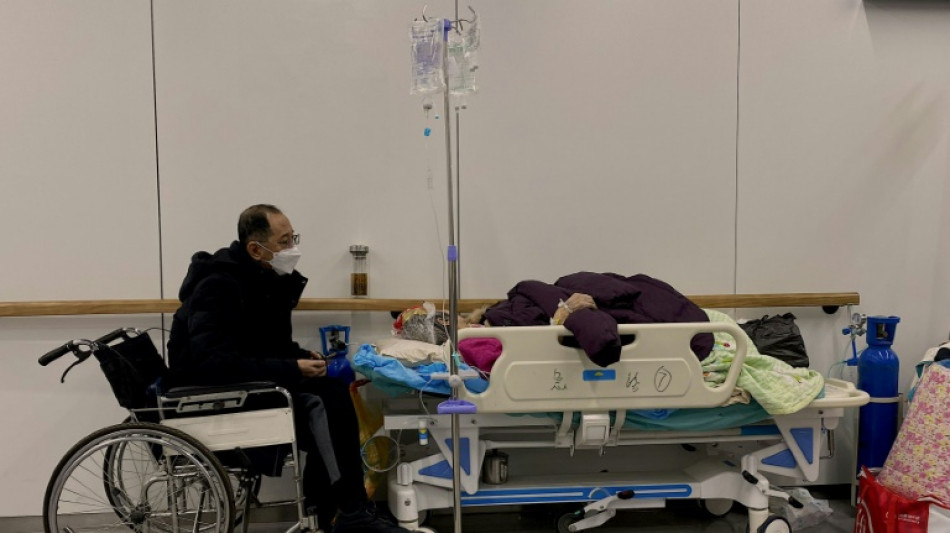
CMSC
-0.1800


Doctors working despite being infected, beds filled with dozens of elderly straining to breathe -- on the front lines of China's worst-ever Covid outbreak, hospitals are struggling.
Many Chinese were jubilant after Beijing announced the end of mandatory quarantines this week, effectively drawing the curtain on years of hardline virus controls that had isolated the world's most populous country.
But as China opens up, cases are surging. The healthcare system is straining and crematoriums struggling to deal with the influx of bodies.
At Nankai Hospital in Tianjin, around 140 kilometres (90 miles) southwest of the capital Beijing, AFP on Wednesday saw more than two dozen mostly elderly patients lying on gurneys in public areas of the emergency department.
Most were hooked up to intravenous drips, and some appeared to be experiencing breathing difficulties. A few seemed to be unconscious or not fully responsive.
"Yes, they all have Covid," a doctor told AFP.
"The problem is that there aren't any beds at the moment," another doctor could be heard telling the guardian of a patient.
China's National Health Commission (NHC) last week said that it would no longer release an official daily Covid death toll.
But with the end of mass testing -- and China's decision to reclassify Covid deaths in a move analysts said would dramatically downplay the fatalities -- those numbers were no longer believed to reflect reality.
A doctor in Tianjin said his emergency room was much busier than usual "because of the outbreak".
Medical staff are "pretty much all" expected to continue working despite testing positive for the virus, he added.
In the hospital's separate fever clinic, AFP saw doctors in hazmat suits attending to around 30 mostly elderly patients, some of whom were clutching printouts of CT scans.
"Try not to move too much," murmured a man to a groaning elderly woman on a gurney in an emergency department corridor, as patients and medical personnel streamed past.
- 'Four-hour wait' -
At the nearby Tianjin First Center Hospital, an AFP reporter saw at least one dead person being wheeled out of a ward.
AFP counted more than 25 patients of advanced age lying on makeshift beds in the emergency department's narrow corridors.
Many were attached to IV drips and several lay inert. Others shivered and coughed in face masks, woolly hats and thick blankets.
In a resuscitation room, an AFP reporter saw a group of doctors gathering around an intubated elderly patient attached to machines monitoring vital signs.
Security guards stood at the doors to some consultation rooms to ensure the long lines of patients remained orderly.
Hospital staff confirmed to AFP that the majority of emergency room patients were experiencing complications related to Covid.
In a corner next to the pharmacy window, a man used a cotton bud to dab water around the parched lips of an elderly woman on a gurney who was visibly struggling to breathe.
Several ambulances ferried more patients into the department through the afternoon.
"It's a four-hour wait to see a doctor," staff could be heard telling an elderly man who said he had Covid.
"There are 300 people in front of you."
AFP journalists have witnessed similar scenes at hospitals in other parts of the country, including Shanghai and Chongqing where hospitals are struggling to cope with the influx of patients.
K.Ibarra--TFWP